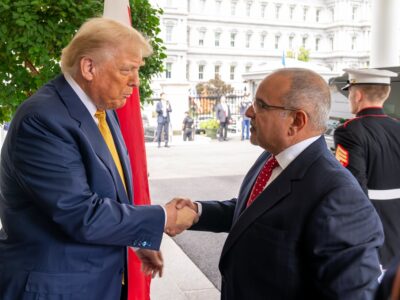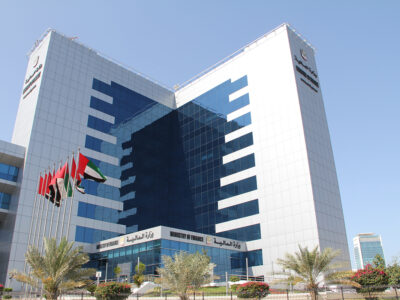In comparison to other emerging markets, Africa has historically been regarded as a high-risk environment for trade and investment, and the continent has experienced an economic slowdown as slumping oil prices hit the global economy. This combined with increasing debt is potentially discouraging investment.
However, for forward-looking investors, Africa remains a land of strong opportunities. This rang particularly true from the conversations which took place during the ALN Africa Investment Conference 2018 earlier this month.
The continent is tipped for continuous growth, with The World Bank predicting a regional GDP growth of 3.2 percent for 2018, an increase of 0.8 percentage points, with an even greater increase of 3.5 percent forecasted for 2019. Six of the top 10 fastest growing economies in 2018 are African countries and approximately two thirds of countries in Africa have experienced growth acceleration in 2018.
By 2055, the continent’s youth population is expected to be more than double the 2015 total of 226 million. This demographic potential presents an immense opportunity for change.
Current investment climate
In the past, investors have associated Africa with unstable political environments, corruption, lack of rule of law and regulation, poor corporate governance and weak security – all of which have been identified as barriers to increased investment.
However, African countries are increasingly seeking to demonstrate that they can achieve sustainable and inclusive growth by diversifying their economies, boosting productivity and adopting policies that aid the poor. Four African countries were among the top ten improvers globally in the 2018 Doing Business rankings for 2016/17. Overall, Sub-Saharan Africa accounted for the largest number of regulatory reforms — 85 of the 264 worldwide.
By 2030, 43 percent of Africans will belong to the middle or upper classes, up from 39.6 percent in 2013, implying considerably higher demand for goods and services. By 2030, household consumption is expected to reach $2.5tr, up from $1.1tr in 2015.
Nearly half of that $2.5tr will be spent in three countries: Nigeria (20 percent), Egypt (17 percent), and South Africa (11 percent). But there will also be lucrative opportunities in Algeria, Angola, Ethiopia, Ghana, Kenya, Morocco, Sudan, and Tunisia. Any one of these countries would be a good bet for companies seeking to enter new markets.
China has anticipated this potential by making extensive investments in Africa, increasing its exports to Africa more than sevenfold – to $103bn – from 2005 to 2015. If Western businesses hope to keep up, they will need to tap into the African countries and sectors with the highest potential for growth.
Growth Sectors
Africa accounts for about 40 percent of global reserves of natural resources – resources such as gold, diamonds, gas and oil – and these traditional resources continue to attract investors.
Nigeria is expected to be the standout performer amid recovery in oil prices. Nigeria’s growth is set to increase from 0.8 percent in 2017 to 2.1 percent in 2018 and 2.3 percent in 2019 on the back of an improved outlook for oil prices.
But these natural resources are not the most important growing sector.
Customer facing industries like Fast Moving Consumer Goods are rising rapidly thanks to a growing middle class and the fact that the continent is home to the fastest growing population in the world. By 2030, the sectors generating the most value in Africa will be food and beverages ($740bn), education and transportation ($397bn), and housing ($390bn). But there will also be strong growth in consumer goods ($370bn), hospitality and recreation ($260bn), healthcare ($175bn), financial services ($85bn), and telecommunications ($65bn).
Agriculture is another sector offering a wealth of untapped opportunities and the sector is estimated to grow to a trillion-dollar industry by 2030, with the necessary investment and policy reforms. The expected growth in agriculture and agricultural processing reflects the fact that food and beverages will constitute the largest share of total household spending. Moreover, 60 percent of the world’s unused arable land is in Africa, which still contributes a meagre share of worldwide agricultural exports and its vast water resources have hardly been tapped. That means there is a lot of room for growth.
Investors also see significant opportunities to invest in Africa’s non-commodities sectors: financial services, construction and manufacturing now account for 50 percent of Chinese FDI in Africa. With rising production costs in Asia, manufacturers have been looking at countries such as Ethiopia, Kenya and Rwanda. China is expected to lose from 85-100 million low-cost, labour-intensive manufacturing jobs by 2030, and Africa stands to capture many of them.
Strategies for entry
Africa is the world’s last frontier market, and Western businesses need to start taking advantage of its tremendous potential, as Chinese firms already are doing.
However, as in any other part of the world and especially given the scale, complexity and fragmented nature of the continent, it is important for investors to carry out their due diligence and make well-informed investment decisions.
There is tendency for people to talk about ‘Africa’ almost as a single country. In reality, the continent spans 54 countries, numerous languages and multiple legal systems. Investors planning to do business in Africa should develop a good understanding of what the drivers are for each individual market, which may differ from country to country, and retain a flexibility to their investment approach, so they can react and adapt as those markets develop.
A local partner who can provide support and guidance is essential. Finding the right local partner is critical as they are the ‘eyes and ears on the ground’ and can assist with strategic execution, risk management, relationship building and opportunity identification. It is important for investors to carry out background checks on their local partners, their connections and expertise – to ensure they select the right partner for their business.








